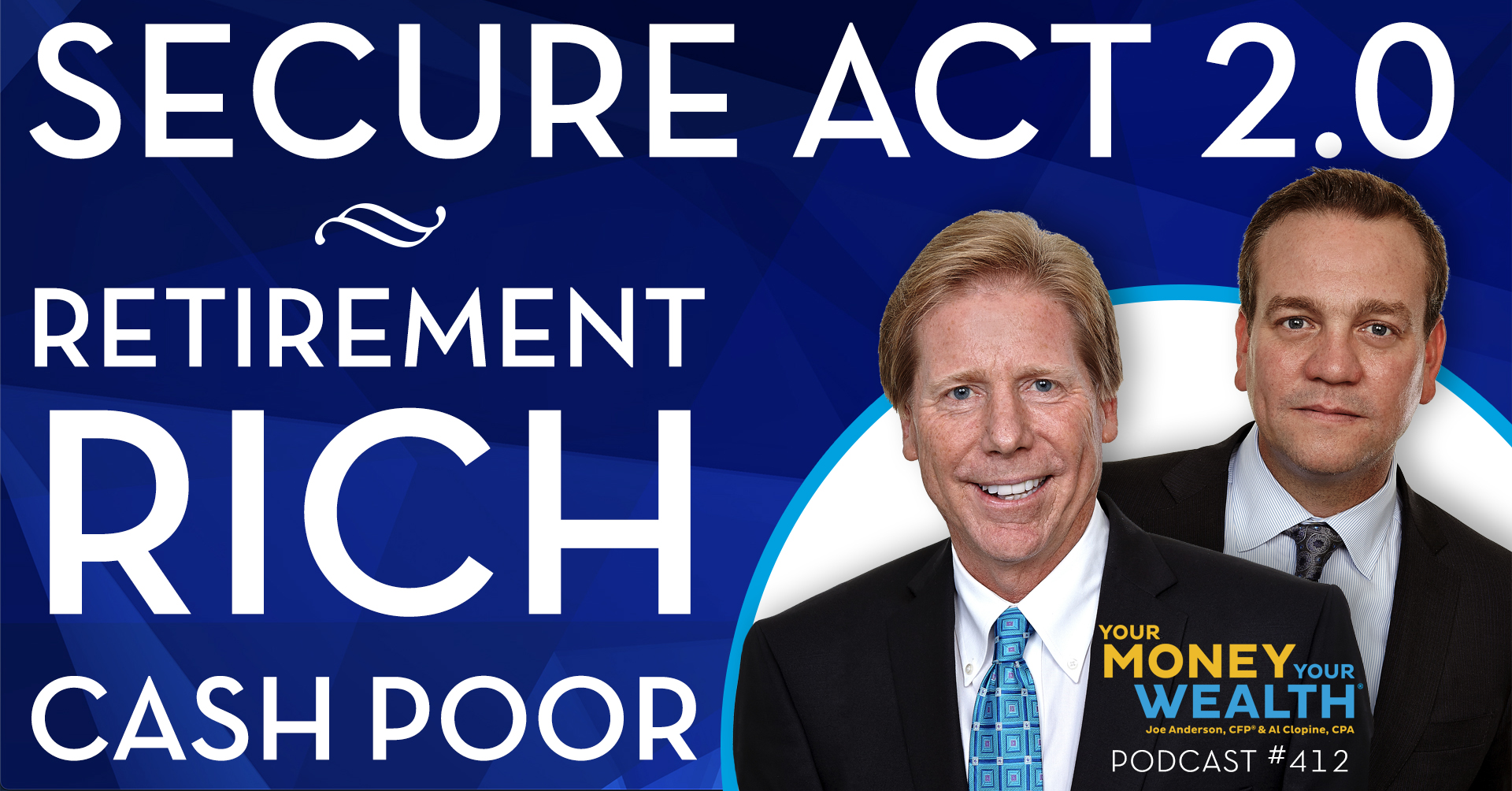More
At Pure, our finance white papers cover a wide range of topics involving the financial and investment industry as a whole. These educational guides are written by experienced professionals that have extensive knowledge on these topics. Whether you are looking to learn the very basics of finance or want to dive deep into tax planning, we have something for you. These financial services white papers can also help you develop a proper financial, retirement, or estate strategy to help you secure a bright future. Make financial planning easier by educating yourself with our wealth management white papers.
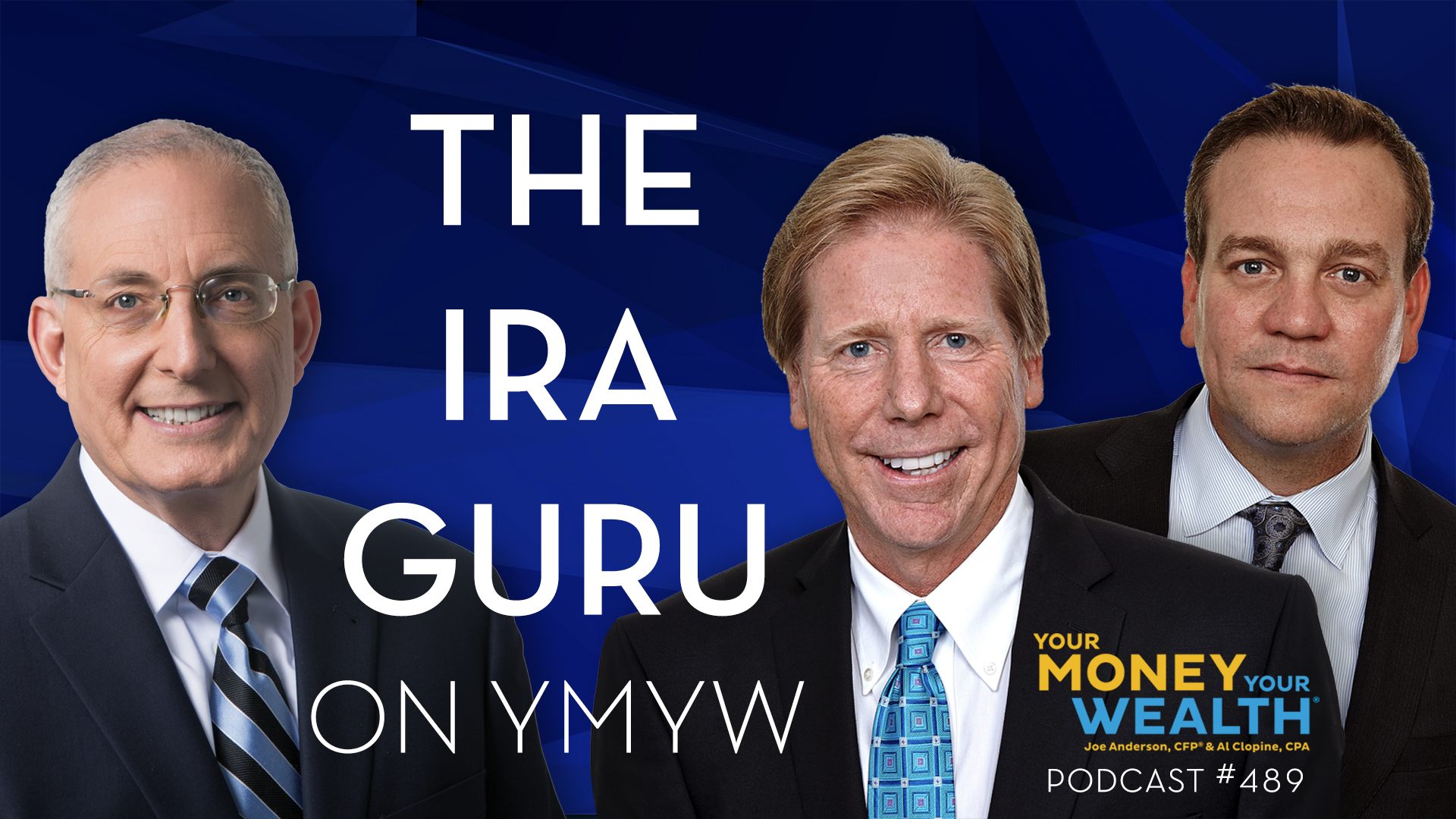
The single biggest retirement planning mistake to avoid, the problem with tax professionals, and answers to some of the most frequently asked retirement questions we get on YMYW: should you name a trust as beneficiary on your retirement accounts? What’s the break-even point on a Roth conversion? What if you don’t have the money to pay the tax when you convert to Roth? Plus, find out the eye-opening amount of money good tax planning can save you! Someone has to be very knowledgeable, entertaining, and special to make it as a guest on YMYW these days. Today “the IRA guru” Ed Slott, CPA from IRAHelp.com joins Joe Anderson, CFP® and Big Al Clopine, CPA to discuss all of these topics, along with changes to stretch IRAs and required minimum distributions from the SECURE Act and SECURE 2.0 Act. Finally, don’t miss your chance to get a free copy of Ed Slott’s latest book, The Retirement Savings Time Bomb Ticks Louder.
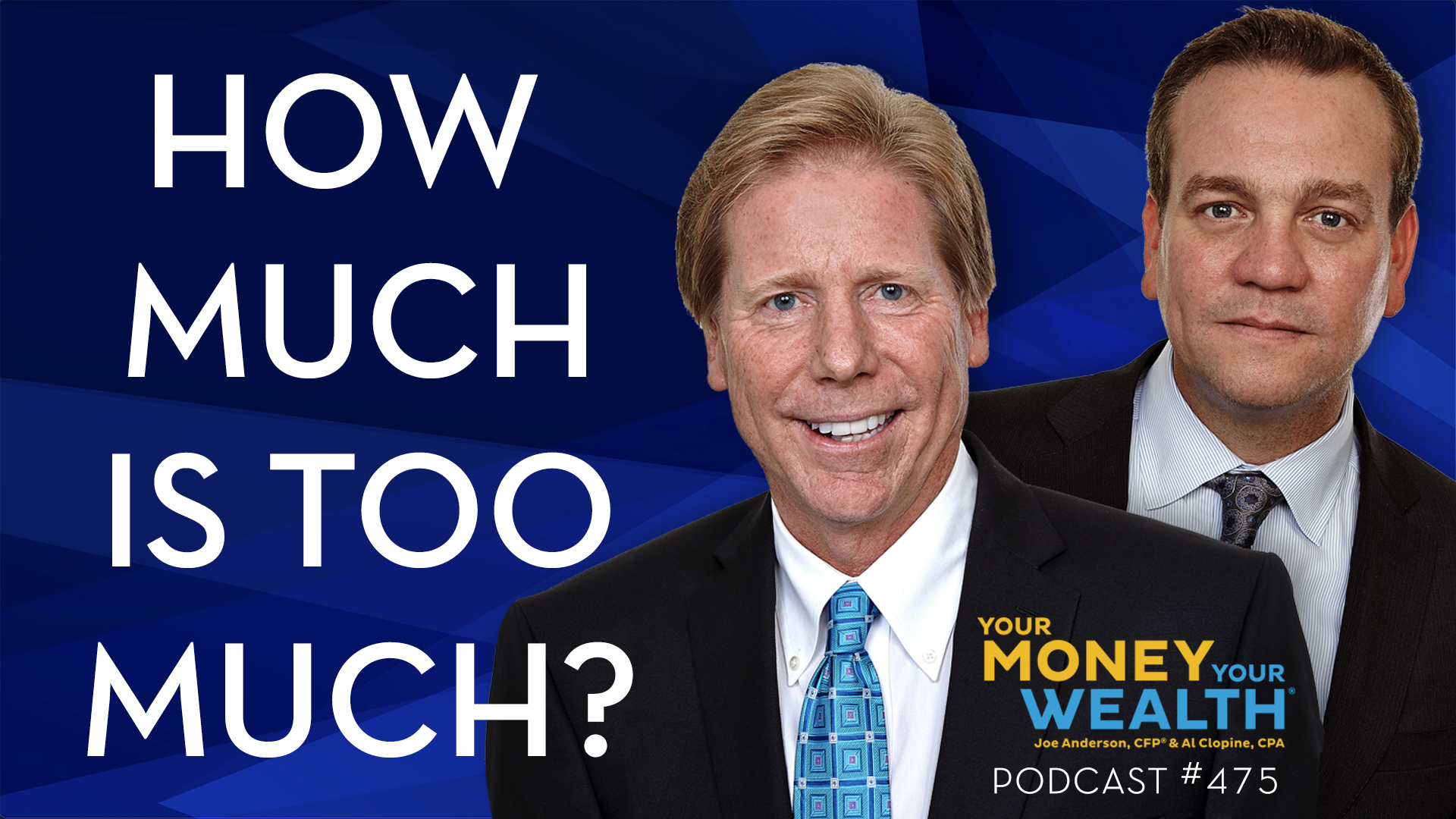
Will Duke and Daisy’s retirement spending plan work? If you’re a fan of hearing Joe and Big Al debate, you’re in luck, as they disagree on assumptions when it comes to retirement planning and withdrawals. The EASIretirement.com calculator says Chuck in South Carolina could convert even more to Roth, and the fellas spitball on the pros and cons. Plus, what should Chuck’s asset allocation be for his daughters, and how should Scott in Kansas City’s parents allocate their assets? Can Rothaholic undo his Roth conversion? Brian Fantana and his wife are in their 30s and want to retire at 60. Are they on track? Ricky in Alabama wants to avoid Medicare’s IRMAA, or income-related monthly adjustment amount. Should he spend from his IRA or from his Roth? Daniel in Whittier wants to know what exactly counts for IRMAA income, anyway? And finally, Elisa in Fremont wants to know, with the new SECURE Act 2.0 rules, when can you transfer 529 college savings funds to Roth?

Charles has had it with Joe and Big Al stumbling through the Roth 5-year rules, so he explains to the fellas, once and for all, the rules for withdrawing money from a Roth IRA. Plus, is Shane missing any retirement risks before he retires early at age 55? Nick wants to know if employers are required to adopt all of the provisions in the SECURE Act 2.0, or if they can pick and choose which to implement, like they can with the rule of 55? Plus, how can Stew offset huge capital gains on the sale of an inherited house, and we revisit whether George can move investments in-kind from an inherited trust to a brokerage account.
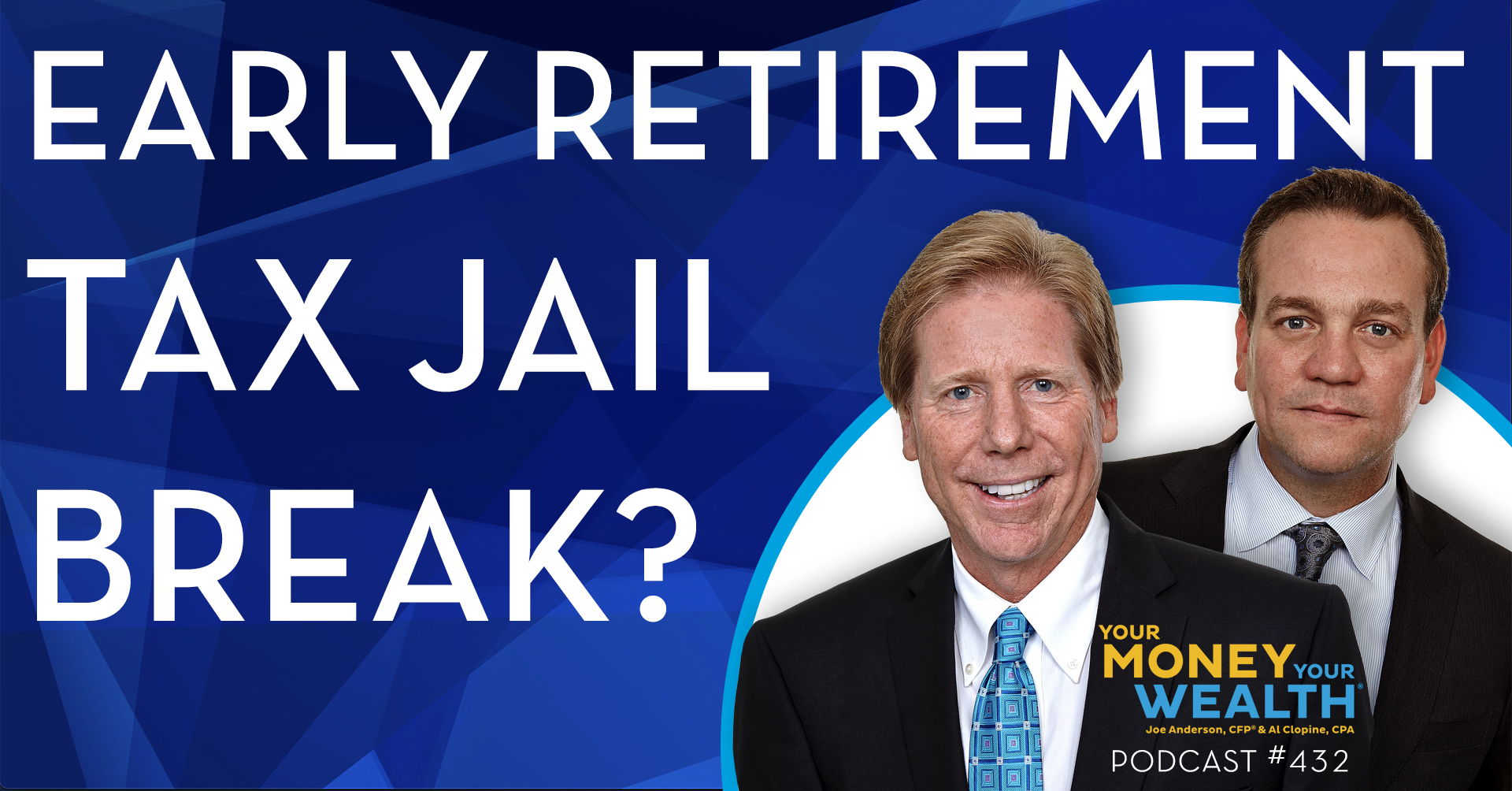
Can you retire before age 55 simply by contributing to your 401(k) only up to the company match and then saving to a brokerage account? Joe and Big Al spitball on using this so-called tax “jailbreak” strategy to retire early. Plus, is Christine on track to have $150,000 present value to live on in retirement? Is John stuck just watching his money grow and turn into big required minimum distributions? Can Jackie contribute to a SEP IRA and convert it all to Roth? And what do the fellas think of Lee’s I-Bond emergency fund?

Are low-cost mutual funds or ETFs better investments in a tax-advantaged account? Also, more strategizing from that SECURE Act 2.0 529 plan provision, the pros and cons of selling a rental house now or holding it until you pass, and an easy-breezy self-employed retirement account that’s better than a SEP IRA. Plus, will municipal bond income bump you into a higher tax bracket? Can you avoid capital gains tax by investing less aggressively over time?

Saving for retirement can be a bit of a three-ringed circus but Joe Anderson, CFP®, and Big Al Clopine, CPA have your ticket to the show! Whether you’re retired, saving for retirement, in the military, or paying off student loans, SECURE 2.0 is a massive shift in investment policy, designed to motivate and enable people […]

Saving for retirement can be a bit of a three-ringed circus. Now that Congress has made a massive shift in investment policy by signing Setting Every Community Up for Retirement Enhancement or SECURE 2.0 into law, it can be more confusing than ever. While the specifics can be overwhelming, the goal is simple: to help increase access and […]

With the new SECURE Act 2.0 rules regarding retirement savings contributions, should your company match go into the traditional or Roth 401(k)? Joe and Big Al also discuss whether you can or should do Roth conversions when your company fails non-discrimination testing for highly compensated employees, the mega backdoor Roth vs. the employee stock purchase plan, and they spitball a tax arbitrage strategy. Plus, a retirement spitball for a 37-year-old couple wanting to retire in their 60s, and another couple wanting to FIRE (financial independence/ retire early) – but are they screwing up and creating a huge future tax bill?

It’s crucial to know how the new RMD rules will impact you to properly plan your finances in the future. Jeff Brecht, CFP®, AIF®, Pure Financial Planner, Los Angeles branch, points out the new RMD changes with the passing of the SECURE 2.0. FREE GUIDE | The SECURE Act 2.0 Guide Transcript For retirees or […]
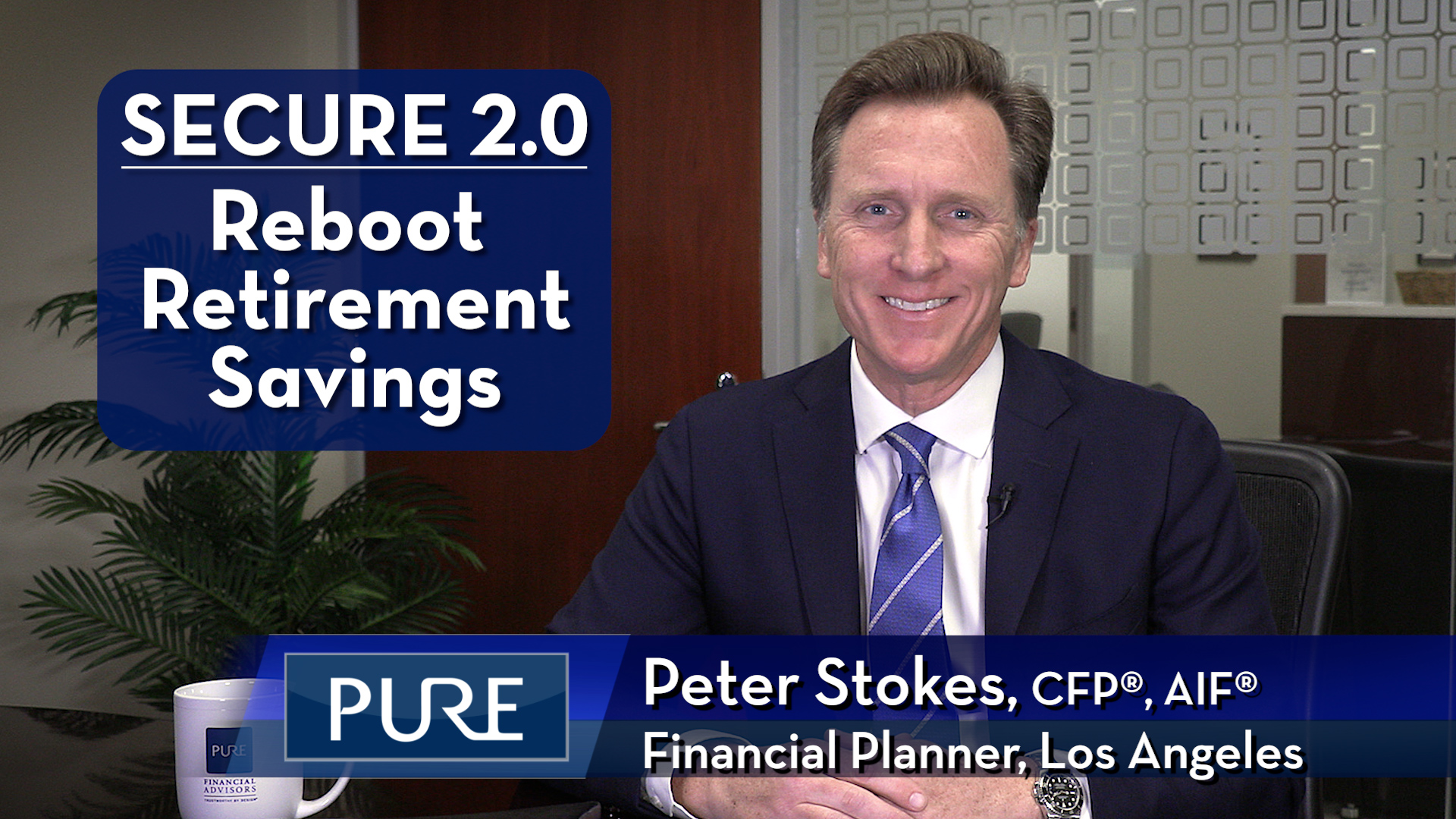
Secure 2.0 aims to expand coverage and increase retirement savings for employees. Peter Stokes CFP®, AIF®, Pure Financial Planner, Los Angeles branch, covers the key retirement provisions and how they may effect you. FREE GUIDE | SECURE Act 2.0 Guide Transcript The Secure 2.0 act is now law. The legislation provides a slate of changes […]

The Setting Every Community Up for Retirement Enhancement Act, or the SECURE Act, was included in a bill passed by Congress in December 2019, becoming effective on January 1, 2020. At the end of 2022, President Biden signed a $1.7 trillion bill into law. The Secure Act 2.0 comes with a lot of retirement and […]

